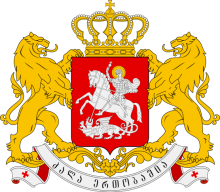Resource information
The scope of this Law shall be acknowledgement of the right of ownership to land plots pertaining to the ownership (tenancy) of natural and legal persons of private law. It shall be also applicable to unauthorized land seizure related to the plots of land pertaining to public land. This Law establishes plenary powers of state bodies representing the interests of the state in the process of acknowledgement of the right of ownership. The right of ownership shall not be acknowledged, inter alia, to the following categories of land: (a) grazing routes; (b) state forest fund; (c) protected areas; (d) parks, forest parks, urban and recreational forests; (e) cultural heritage; (f) waterbodies and land under waterworks; and (g) sanitary and protection areas.
Implemented by: Resolution No. 144 of 2011 of Georgian Government on Attribution of Plot of Land as Part of Essential Part of Another Plot of Land (2016-03-29)
Implemented by: Resolution No. 376 of 2016 of Georgian Government on Recognition of Ownership of Land in Possession (Use) of Individuals and Private Entities and Form for its Certificate (2017-04-13)



